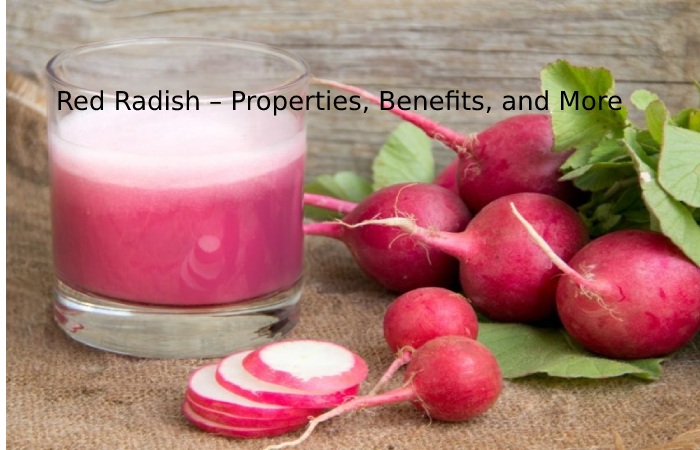Red Radish is a plant from which you can eat part of its root, which you will find in your Gads supermarkets of the same name. They are classified as vegetables and come in different forms. Some are round, and others are very similar to the shape of a carrot, although generally more rounded and pointed. Today, we explain to you the benefits and properties of red radish.
supermarkets of the same name. They are classified as vegetables and come in different forms. Some are round, and others are very similar to the shape of a carrot, although generally more rounded and pointed. Today, we explain to you the benefits and properties of red radish.
The most common way to eat them is a salad. They have a spicy flavor but are very sweet. They adapt to many combinations precisely for this reason, as they do not “monopolize” the recipe when it comes to taste.
Table of Contents
The Properties Of Red Radish, Excellent For Weight Loss
Radish is very suitable for weight loss because more than 94% is water. It aids digestion, is essential for all body processes, and, in addition, helps to feel full without having to eat a large amount of food.
Only 0.54% of radish is fatty, and 0.6% is a protein (100 grams contains 20 kilocalories). Among its other nutrients, 1.6% fiber and almost 4% carbohydrate stand out. If you remain looking for light, healthy, and filling salads, this is ideal.
Radish is rich in potassium and calcium and small amounts of magnesium, phosphorus, iron, zinc, selenium, copper, and sodium. They also contain many vitamins, especially C and B9, and small amounts of other B vitamins.
Benefits Of Radish
The red color comes from the plant’s red pigment, anthocyanin. It turns into a powerful antioxidant in the body that prevents cardiovascular disease by protecting our cells from damage. Plus, they provide a unique molecule called indole-3-carbinol (I3C), which reduces inflammation.
Radishes are also a great source of potassium. This mineral promotes a good water balance in the body by acting as a diuretic. Another great benefit of red radishes is their detoxifying power in the liver by stimulating the synthesis of bile.
Is It Bad To Eat A Portion Of Radish?
Radish has diuretic properties that stimulate urine production. But if consumed in excess, it could lead to excessive water loss leading to dehydration. We are talking about very high amounts that it is not usual to ingest. They can also cause low blood pressure and not recommend for people with gallstones or pregnant women.
They are fresh, juicy, crunchy. Go well on your own with lemon and tagine, sautéed or to accompany tacos. Radishes are lovely that we find all over Mexico and, of course, love it.
But did you know that besides being rich and versatile, they have a series of benefits and contraindications that you should consider before eating them again? Here we tell you essential things you need to know about it.
Its Nutritional Properties
Radish provides our body with many nutrients in addition to very few calories. For example, in 100 grams of raw radish, we find 3.4 grams of carbohydrates, 1.6 of fiber, 1.86 of sugars, 1 of protein, 0.1 of fat, and between 16 and 17 total calories.
It is also accompanied by vitamins C, complex B, K, potassium, sodium, calcium, phosphorus, magnesium, iodine, iron, and zinc.
Thus, this tuber, of which only the leaves are usually consumed, is advantageously linked to:
- Liver health
- Gallstones removal
- Ease of food digestion.
- Better functioning of the cardiovascular system.
- Reduction in blood pressure.
- Dieting to lose weight because of the few calories it provides
- Strengthening the immune system.
- it’s diuretic
Contraindications To The Consumption Of Radish
Despite all the benefits it brings to the better functioning of our body, there are some that you must now take into account. Among them are:
It is harmful to people with hypothyroidism or goiter. This is because it does not allow iodine to be adequately absorbed in the body, and as a result, the thyroid gland tends to enlarge.
Often, it causes an upset stomach and even nausea, as it can irritate the stomach lining when consumed in excess. It is mainly attributed to the presence of a compound called allyl isothiocyanate.
Because radish is an excellent regulator of blood pressure, people with low blood pressure should consume it in moderation as it can cause hypotension.
